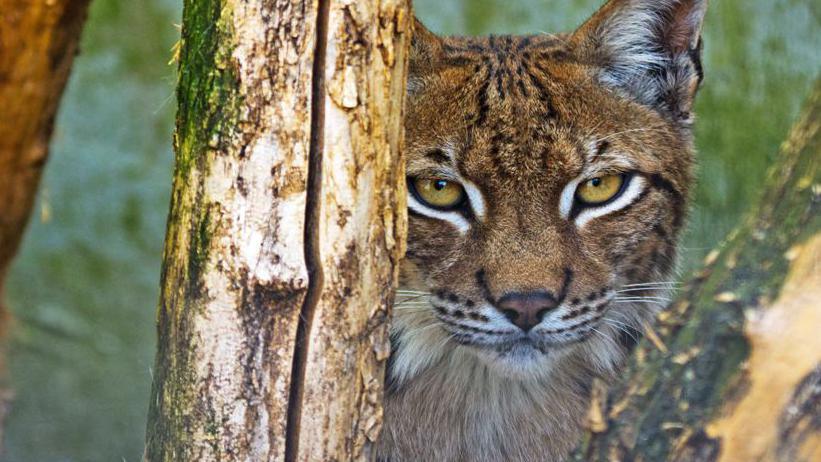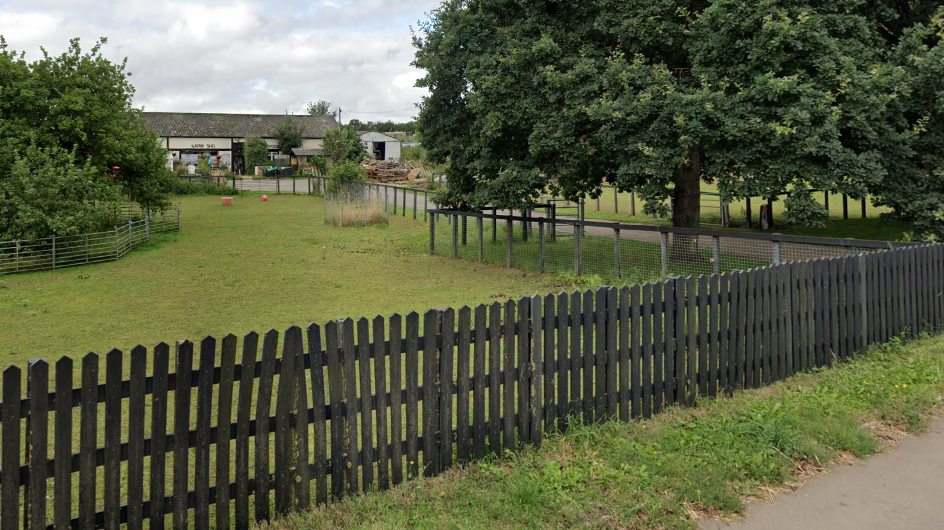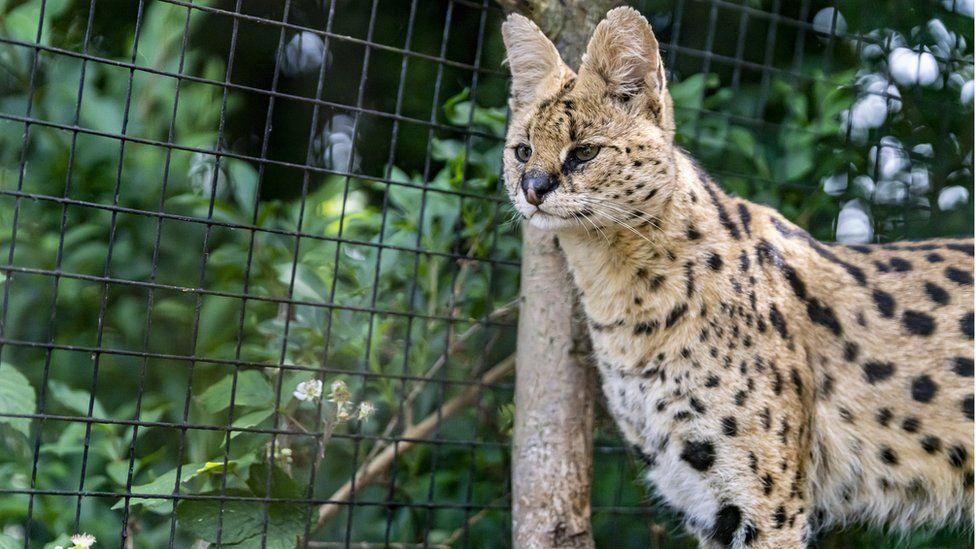Convicted big cat park owner faces animal ban

The prosecution said there was a pattern of general neglect to the animals, including a lynx (one of which is pictured at The Cat Survival Trust)
- Published
A big cat sanctuary owner has been told he will be banned from keeping animals after being convicted of animal welfare charges.
Terrence Moore, director of the Cat Survival Trust in Welwyn, Hertfordshire, was found guilty of four charges of causing unnecessary suffering to an animal.
Prosecutors said the 77-year-old relied on homeopathic remedies and did not call in veterinary nurses.
He was told at St Albans Crown Court he would be banned for five years once arrangements were made for the 31 animals at the trust.
The judge, recorder David Mayall, said he would order him also to pay fines totalling £10,000.
A sentencing hearing earlier on Monday was adjourned until 30 May.
"You had had considerable achievements in your life’s work but the time has come when that has to stop," said Mr Mayall.
Moore was also found guilty of seven charges of using an animal species for commercial gain without a licence by a jury last week.
However, he was also cleared of eight charges of causing unnecessary suffering of an animal and four of using an animal species for commercial gain without a licence.
The four animals were a male European wildcat called Hamish that had come from a zoo in Paris, a female Bengal cat named Jasmine, a jungle cat called Lily and a Caracal cat.

The Cat Survival Trust was not open to the public, but photographers could pay for entry
During the trial, prosecutor Charles Miskin KC said the Cat Survival Trust was not a zoo but was open to the public and people could join as members.
He said Moore "neglected his basic duty of care towards some of these the animals... either through sheer neglect or through a dislike of modern veterinary medicine, or for financial reasons".
He described the site as "a shambles" and added: "Food preparation, storage and disposal was not hygienic, the housing of some animals was inadequate or insecure, and a large number of unvaccinated domestic cats were wandering around exposing the trust cats to risk of disease, especially as they themselves weren’t vaccinated."

The Cat Survival Trust is based in Codicote near Welwyn, Hertfordshire (pictured is one of its serval cats)
His barrister Daniel Higgins asked the judge to consider the suffering was not for commercial gain and that "no harm was intended".
“Mr Moore and others have taken in a large number of unwanted animals to give them the best life possible," he said.
"He has devoted his life to the conservation of big cats."
The sanctuary director had received no financial reward and profit gained from photographers who visited the site had gone back into running the charity, his barrister said.
Mr Mayall accepted that his "primary aim" was always for the animals and said he was satisfied that any suffering was not intentional.
But he explained: "You have fallen short because of your reluctance to obtain veterinary care for those animals.
"It was borne from a belief the homeopathic remedies you were treating was the best treatment.”
Moore started the sanctuary in the 1970s with his wife.
Follow Beds, Herts and Bucks news on Facebook, external, Instagram, external and X, external. Got a story? Email eastofenglandnews@bbc.co.uk, external or WhatsApp us on 0800 169 1830
Related topics
- Published23 April 2024
